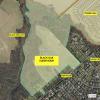Anyone who’s visited Lewes Beach the last few summers knows parking is at a premium. A parking permit program is in the works, but it’s not happening until at least summer 2023. Parking and traffic woes won’t wait for that program, so it’s nice to see city officials move forward with the Lewes Line. If successful, this transit service can reduce traffic and relieve some of the strain on the city’s limited parking.
The Lewes Line was made possible due to a generous lease from Delaware Transit Authority, which will provide five retired DART buses for the economical cost of $1 per bus per year. City staff estimates it will cost just over $150,000 to implement the transit service. Most of the funds will go toward paying drivers, purchasing uniforms and retrofitting the buses with Lewes Line decals. This is not a profitable endeavor for the city, but some of the annual expenses will be offset by user fees – possibly $1 per ride – and advertising inside the buses.
This low-cost approach was an easy decision, and we applaud Lewes Mayor and City Council for making it quickly. If visitors and residents do not embrace the Lewes Line – we hope they do – city officials can scrap it with little investment of taxpayers’ money. The city is not on the hook for the purchase of buses. That’s a big win.
The existing plan is to offer nine stops around the city. Two key stops are the parking lots at Cape Henlopen High School and the Cape May-Lewes Ferry terminal. With other stops strategically placed at Lewes’ most frequented locales, visitors of all ages can park at one of these two lots and enjoy the town without much effort. It’s also cheaper than feeding parking meters.
If the Lewes Line can get off on the right foot, the city should consider expansion to include other popular spots such as Cape Henlopen State Park and Roosevelt Inlet, and provide opportunities for more of the city’s residents to have access closer to their homes. Everyone, including the environment, benefits from getting cars off the road.





















































